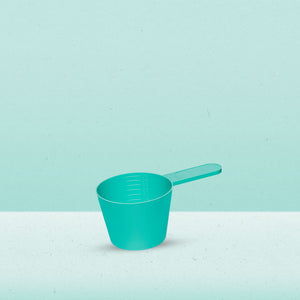Did you know that we spend 1/3 of our lives asleep? We spend a lot of our time on this planet horizontally, yet a good sleep is often very underrated... “Let’s finish this email before going to bed” “Let’s watch another episode” “Did I already eat?”. Yes, we hear you, and of course, occasionally there’s nothing wrong with extending your waking hours. But did you also know that sleep is just as important as eating a healthy, balanced diet and exercising?
In this article we will show you how a good quality sleep is linked to better mental health, muscle growth, fat loss, productivity and concentration. Furthermore, we will present a list on how to upgrade your sleep quality and we will dive into the possible relevance of daytime naps. Finally, we will discuss the relationship between sleep and Jimmy Joy (spoiler: it’s a romantic one).
The importance of sleep (quality)
Nowadays, for many people sleep has become some kind of luxury reserved for the fortunate. Working full-time, while at the same time taking care of family, friends, pets and going out (to the gym), leaves only little time for sleep. According to worldwide data, not one, out of the 48 countries that participated, manages an average of the recommended 8 hours of sleep a night [1]. This is warning according to Dr Michael J. Breus (Clinical Psychologist and Diplomate of the American Board of Sleep Medicine), since sleep plays a vital role in good health and well-being throughout our lives. Although, he says it’s more about sleep quality, rather than the length of sleep you need. “Some people might sleep seven hours a night, but the quality of their sleep is so bad, it's like them getting four hours a night. That’s why it’s important to know how much sleep your body needs [2].” Luckily, there's a free simple test to find out if you're getting enough sleep: Do you feel sleepy? Yes? Then you probably need more sleep. End of test [3].

Getting enough quality sleep at the right times for your body can help protect and improve mental and physical health and even the quality of your entire life. No wonder… If you live, say, 75 years, that's 25 years asleep! The following chapters will show you how sleep can help you become your best self.
Sleep as the optimizer for better mental health
Sleep is essential for the brain. While we are asleep, our brain is preparing for the next day and literally clearing, or cleaning, the mind [4].Studies have shown that the brain is forming new pathways to help you learn and remember information. Whether you're learning how to ride a skateboard, how to play the bamboo flute or how to NOT kill your plants, sleep is the answer to enhancing your learning and problem-solving skills.

Some studies have also shown that deficiency of sleep changes the activity in some parts of our brain. That’s why you may encounter trouble making decisions, solving problems, controlling your emotions and behavior, and dealing with change if you experience sleep deprivation [5].
Although the role of the brain in the relationship between sleep and mental health is not yet completely understood. Neurochemistry studies assume that a good quality sleep is essential for promoting both mental and emotional resilience, while chronic sleep deprivation is believed to affect your mood in a negative way and is related to increased depressive feelings [6]. So... ready for that nap?
Sleep as the unsung hero for muscle growth and fat loss
If there’s one facet of building muscle and losing fat that’s most underestimated, it’s sleep for sure. Maybe it’s hard to believe, but sleep might be the reason why others seem to see results much faster than you are. The findings of a study by the American College of Physicians for example showed that the group of people that slept 8,5 hours a night (which is within the range of what most experts recommend) lost 55% more fat and preserved 60% more muscle on a reduced calorie-diet. The other group, that slept 5,5 hours per night (which is pretty standard for many people nowadays) lost 55% less fat and lost 60% more muscle on a reduced calorie-diet [7].
Although this study didn’t test why exactly this was the case, a more recent 2018 study makes this more clear. Researchers analyzed the effects of one night of no sleep on 15 young men. After that single night signs of increased protein breakdown were already visible in their muscles and their fat tissue had raised levels of proteins and metabolites which are involved in promoting fat storage [8]. Just one night!

A study by Wang et al. (2018) found even worse effects of sleep deprivation. According to this study, sleeping 40 fewer minutes during the midweek caused the ratio of lean to fat mass loss to shift from a mere ~20% lean mass loss to ~80% lean mass loss. However, the ratios reported are in the paper incongruent with the absolute values [9].
Sleep as the booster for productivity and concentration
What if there would be a free cure to improve your productivity at work? Sleep might (surprise, surprise) again be your answer! (This is starting to feel like an ad.) Meet productivity killer #1: insufficient sleep. One study found that ‘work overload’ might be the main driver of us not getting enough sleep because we are working too much. You could say that spending less time on sleep means achieving more overall. However, when reviewed against global statistics this is clearly not the case, according to Sleep Cycle [10]. In fact, less sleep makes you feel less energetic and makes you react slower. Insufficient sleep also affects your creativity, focus, decision making process and your ability to solve problems in a negative way. You are also likely to miss out on some deep sleep when you’re not sleeping enough overall. This has a similar effect like being drunk, and we all know how our productivity benefits from that… [12]. All in all, many studies indicate that consistent amounts of sleep prior to work are fundamental to improved performance and alertness in the workplace. According to the National Sleep Foundation a good quality sleep can even save you more than two work weeks worth of productivity every year [3].
How to sleep better?
We hear you thinking: ‘’ok, ok, sounds great, but how the **** will I sleep better? You’re not the only one. Nearly two-thirds of Americans report that their sleep needs aren't being met during a typical week [4].
That’s why we made an expert-approved list of things you can do to awaken your ‘puppy-sleep-cells’ to experience a more restful sleep. According to Lucey, M.D., instructor in the department of neurology at Washington University Sleep Medicine Center in St. Louis, Missouri you can try the following things [4]:
- Stick to a routine. It’s important to wake up and go to bed at the same time every day, even on weekends. Sleep is a systematic process that our bodies regulate automatically. So don’t mess with the system, or it will mess with you. This is not a threat, merely a warning.
- Create a bedtime ritual. Instead of finishing off your emails or discussing big family issues right before bed, turn to more relaxing activities like cuddling with your furry friends (both animal and human), taking a warm bath, meditating, or reading.
- Turn off all screens. Yes, ALL. Shut down all your electronic devices, at least an hour before you hit the sack. Some experts even recommend hiding your clock, too. “If you take a look at the clock mid-slumber, you transition from sleep to full awakening, and you've made it harder to fall back to sleep.”
- Be aware of what and when you eat. Stay away from eating heavy meals, carbs and drinking alcohol right before bedtime. This may cause heartburn and make it difficult to fall asleep. Also, if you want to play it safe, avoid caffeinated soda, tea, coffee, and chocolate after 3 p.m. Caffeine can stay in your system for hours.
- Turn off the lights. Darkness stimulates the body to release the natural sleep hormone, melatonin, while sunlight suppresses it. Keeping your bedroom as dark as possible at night helps promote the production of melatonin and the onset of sleep.
- Avoid using sleeping pills for more than two weeks at a time because they can be addictive. And when you try to stop taking them, you’ll experience even more difficulty falling asleep.
If nothing really works and your sleep problems persist, it is recommended to keep a sleep diary, to note the problems that you're experiencing and when they occur. This can be a convenient tool when talking to your doctor.
What about naps?
There’s some good and bad news.. The bad news: naps do not necessarily make up for inadequate or poor quality nighttime sleep, but the good news is that a short nap of 20-30 minutes can help to improve mood, alertness and performance. According to the National Sleep Foundation, research has shown that naps can improve alertness, boost performance, and decrease the amount of mistakes and accidents. NASA conducted a study on sleepy military pilots and astronauts and found that a 40-minute nap even improved performance by 34% and alertness 100% [12]. Napping can also have some cognitive benefits. It can give you the feeling of a mini-vacation and it’s an easy way to get some relaxation and rejuvenation.

On the other hand, naps can leave people with sleep inertia. You know that feeling of waking up in the middle of day feeling groggy and disoriented? That’s sleep inertia. Mostly this state usually only lasts for a few minutes, but it can be disturbing to those who must perform immediately after waking from a napping period. Another negative side effect of a long nap may negatively affect the quality of nighttime sleep [12].
Still considering napping? Results of a recent study in the research journal Sleep demonstrated that a 10-minute nap produced the most benefit in terms of reduced sleepiness and improved mental performance.
Although naps can easily be incorporated into a daily routine. It is important to know that getting enough sleep on a regular basis is the best way to feel your best self. But when tiredness is taking over your life, a quick nap can perform miracles for your physical and mental health [13].
Sleep and Jimmy Joy
Now you learned why sleep is essential for a good overall health, you might as well like to know how changes to your diet can promote your quality of sleep. So, here’s how some of our ingredients might help with a good quality sleep.
All our products contain Scandinavian oats. This whole-grain cereal is a ‘sleep-promoter’ as it is high in complex carbohydrates and has been reported to induce drowsiness when consumed before bed. Additionally, oats are a good natural source of melatonin. This hormone is naturally produced in our body, but some studies suggest that melatonin production slows down in adulthood. Therefore, consuming melatonin from oats to help regulate the body's internal clock can be a good way to make up for this decrease [14]. Oats also contain tryptophan. This amino acid is converted into serotonin in the brain, the ‘happy hormone’ which relaxes the body before falling asleep. Tryptophan is necessary for the brain to make serotonin, getting enough of it is essential for a good sleep and general feeling of well-being [15].
The bananas in our Plenny shake Banana are apart from a great source in tryptophan, also a good source of magnesium. Magnesium is known for helping you fall asleep faster and staying asleep longer [16]. What more, all our meals already contain 20% of the daily recommended requirements of magnesium [17]. Studies have shown that maintaining healthy magnesium levels often leads to deeper sleep. This mineral does also support deep sleep by maintaining healthy levels of GABA, a neurotransmitter that encourages relaxation and promotes sleep [18] [19].
Nuts and fruits like whole tart cherries, oranges and pineapple are also good sources of melatonin. According to the National Sleep Foundation, eating two kiwis before going to bed can even increase your sleep duration by an hour over the course of a month, when experiencing insomnia [20]. Fruits and vegetables that are rich in antioxidants (like berries, prunes, raisins, and plums) may as well have a similar effect by helping to counteract the oxidative stress caused by a sleep disorder. So, incorporating these fruits in your Plenny Shake might even improve sleeping more soundly [21].

Finally, our products do also contain a wide range of vitamins and minerals that help promote sleep. Apart from Magnesium, Vitamin D, also known as the ‘sunshine vitamin’) is believed to improve the length and the quality of your sleep. Some studies suggest that Vitamin D deficiency is associated with a higher risk of less sleep and sleep disorders [22] [23]. The bone and teeth strengthening mineral calcium, is also known for encouraging sleep, since it helps the brain use the amino acid tryptophan to manufacture melatonin [24]. Research too suggests that good levels of vitamins B6 and B12 may too help experience good sleep, as they help regulate the body’s level of the amino acid tryptophan [25].
If our ingredients are not convincing enough, you could always consume our products as a time-saving alternative for a regular meal to enjoy your (deep) sleep for a prolonged period of time. ;)
Note: More research is needed to draw definitive food and sleep conclusions, but the existing results already look promising!
Sources
- Sleep Cycle (2014). New Zealand got the most sleep of all countries. https://www.sleepcycle.com/wp-content/uploads/2014/12/November-World-of-Sleep.pdf
- Michael Breus [2012]. Your brain on sleep. https://thesleepdoctor.com/2012/02/03/your-brain-on-sleep/
- Sleep Foundation (2014). Lack of Sleep is Affecting Americans. https://www.sleepfoundation.org/press-release/lack-sleep-affecting-americans-finds-national-sleep-foundation?utm_source=zapier.com&utm_medium=referral&utm_campaign=zapier
- Amy Paturel (2014). The Benefits of Sleep for Brain Health. https://www.brainandlife.org/articles/could-getting-more-high-quality-sleep-protect-the-brain/
- Paula Alhola (2007). Sleep deprivation: Impact on cognitive performance. https://www.ncbi.nlm.nih.gov/pmc/articles/PMC2656292/
- Harvard Health (2019). Sleep and mental health. https://www.health.harvard.edu/newsletter_article/sleep-and-mental-health
- Arlet V Nedeltcheva, et. al. (2010). Insufficient Sleep Undermines Dietary Efforts to Reduce Adiposity. https://pubmed.ncbi.nlm.nih.gov/20921542/
- Jonathan Cedernaes, et al. (2018). Acute sleep loss results in tissue-specific alterations in genome-wide DNA methylation state and metabolic fuel utilization in humans. https://advances.sciencemag.org/content/4/8/eaar8590
- Wang, et al. (2018). Influence of Sleep Restriction on Weight Loss Outcomes Associated With Caloric Restriction. https://pubmed.ncbi.nlm.nih.gov/29438540/
- Sleep Cycle (2020). Sleep Cycle Tracker. https://www.sleepcycle.com
- Hannah K. Knudsen, et al. (2007). Job stress and poor sleep quality: Data from an American sample of full-time workers. https://www.sciencedirect.com/science/article/abs/pii/S0277953607000676?utm_source=zapier.com&utm_medium=referral&utm_campaign=zapier
- NASA Science (2005). NASA Naps. https://science.nasa.gov/science-news/science-at-nasa/2005/03jun_naps
- Masaya Takahashi (2012). Prioritizing sleep for healthy work schedules. https://jphysiolanthropol.biomedcentral.com/articles/10.1186/1880-6805-31-6
- Xiao Meng, et al. (2017). Dietary Sources and Bioactivities of Melatonin. https://www.mdpi.com/2072-6643/9/4/367
- Judith J. Wurtman (2014). Chasing Away Insomnia With Oatmeal. https://www.psychologytoday.com/intl/blog/the-antidepressant-diet/201411/chasing-away-insomnia-bowl-oatmeal
- Dawn N.Richard, et al. (2009). L-Tryptophan: Basic Metabolic Functions, Behavioral Research and Therapeutic Indications. https://www.ncbi.nlm.nih.gov/pmc/articles/PMC2908021/
- Nutrition Data (2020). Bananas, raw. https://nutritiondata.self.com/facts/fruits-and-fruit-juices/1846/2
- Katja Held, et al. (2002). Oral Mg(2+) Supplementation Reverses Age-Related Neuroendocrine and Sleep EEG Changes in Humans. https://pubmed.ncbi.nlm.nih.gov/12163983/
- Michael Breus (2017). Magnesium – How it affects your sleep. https://thesleepdoctor.com/2017/11/20/magnesium-effects-sleep/
- Hsiao-Han Lin (2011). Effect of Kiwifruit Consumption on Sleep Quality in Adults With Sleep Problems. https://pubmed.ncbi.nlm.nih.gov/21669584/
- Sleep Foundation (2019). Food and Drinks that promote good sleep. https://www.sleepfoundation.org/articles/food-and-drink-promote-good-nights-sleep
- Qi Gao, et al. (2018). The Association between Vitamin D Deficiency and Sleep Disorders: A Systematic Review and Meta-Analysis. https://www.ncbi.nlm.nih.gov/pmc/articles/PMC6213953/
- Greta Sahakyan (2018). The role of Vitamin D in treatment of Chronic Insomnia with Melatonin (P5.320). https://n.neurology.org/content/90/15_Supplement/P5.320
- Yawen Zeng (2014). Strategies of Functional Foods Promote Sleep in Human Being. https://www.ncbi.nlm.nih.gov/pmc/articles/PMC4440346/
- Kenneth L. Lichstein. (2009). Vitamins and Sleep: An Exploratory Study. https://www.ncbi.nlm.nih.gov/pmc/articles/PMC2174691/
 Everything You Need In One Meal
Everything You Need In One Meal
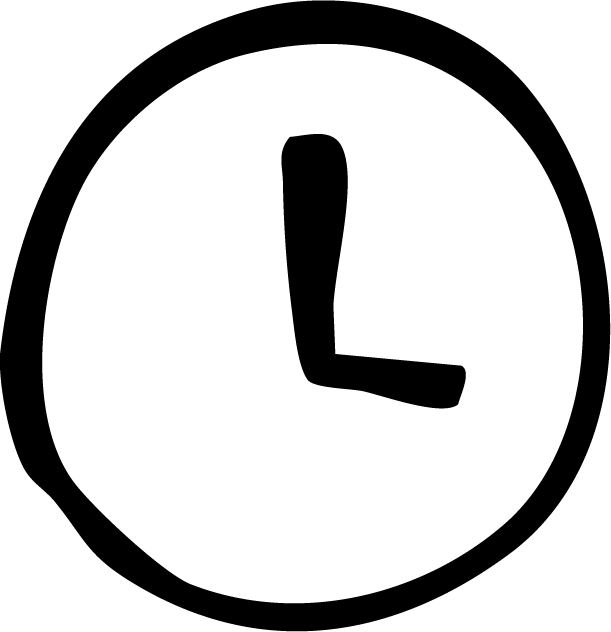 Stay Full For 3-5 Hours
Stay Full For 3-5 Hours




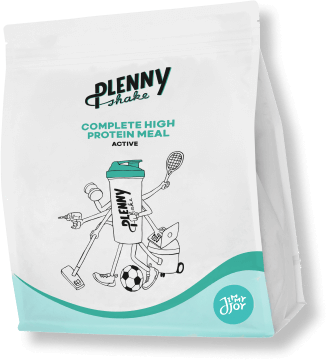




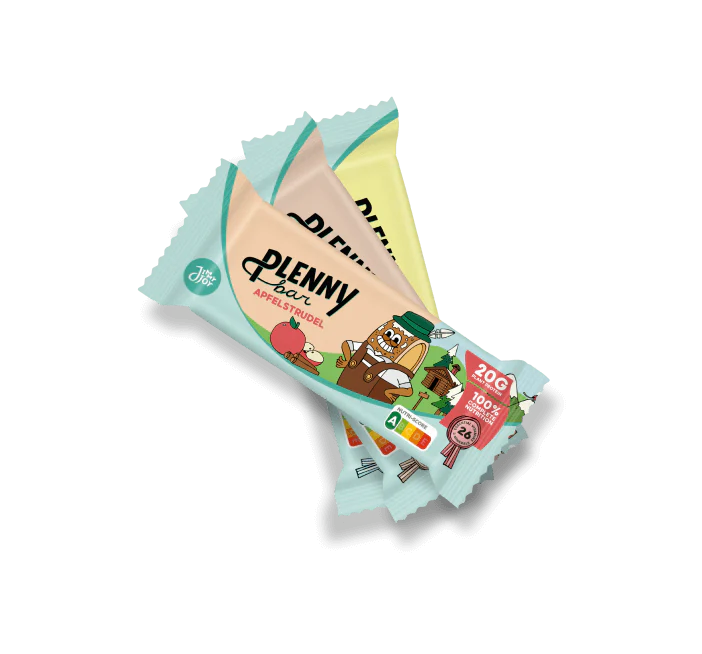

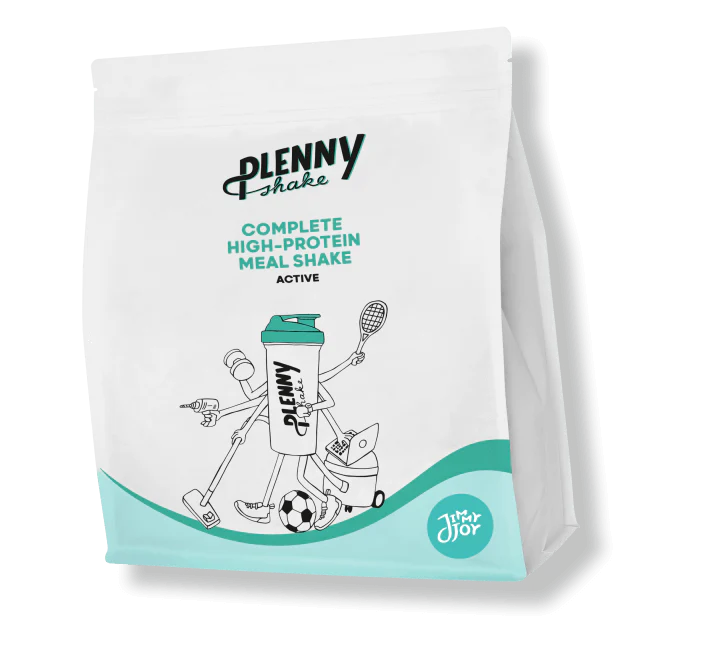

 Product added to cart
Product added to cart





